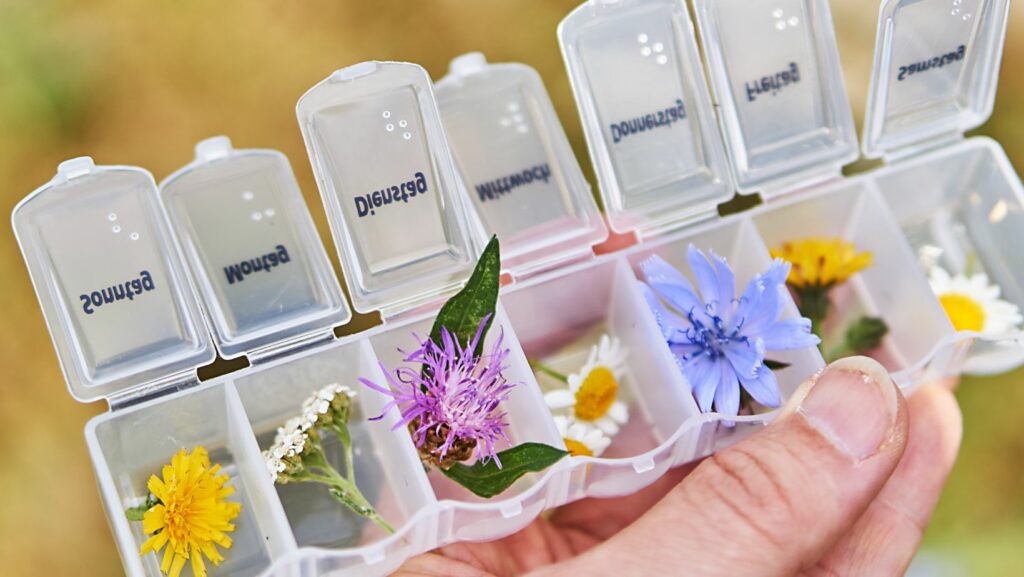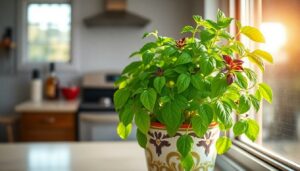Key Takeaways
- Holistic Approach: The Colorado School of Clinical Herbalism blends traditional herbal knowledge with contemporary scientific practices, preparing students for impactful careers in herbal medicine.
- Comprehensive Curriculum: Programs cover crucial topics such as anatomy, physiology, herbal formulation, and therapeutic practices, equipping students with vital skills and practical experience.
- Experienced Faculty: Instructors are skilled practitioners with diverse backgrounds in herbal medicine, ensuring students receive a well-rounded education grounded in real-world applications.
- Supportive Campus Environment: The tranquil campus fosters collaboration and growth, providing students with hands-on learning opportunities and a connection to nature.
- Diverse Career Paths: Graduates can pursue various roles, including clinical herbalists, educators, wellness advocates, and researchers, contributing to the growing field of holistic health.
- Community Engagement: Students are encouraged to participate in local wellness events and outreach programs, building professional networks and enhancing their understanding of herbalism’s societal impact.
Nestled in the heart of Colorado, the Colorado School of Clinical Herbalism stands as a beacon for those seeking knowledge in the world of herbal medicine. This institution offers a unique blend of traditional wisdom and modern science, empowering students to harness nature’s healing potential. With a focus on clinical applications, it prepares aspiring herbalists to make a meaningful impact in their communities.
At the Colorado School of Clinical Herbalism, students dive deep into the study of plant medicine, exploring everything from anatomy and physiology to the art of formulation. The school’s experienced faculty guide learners through hands-on experiences, ensuring they gain practical skills alongside theoretical knowledge. As interest in holistic health continues to grow, this school remains at the forefront, shaping the next generation of herbal practitioners.
Colorado School of Clinical Herbalism
Colorado School of Clinical Herbalism stands out as a premier institution dedicated to herbal medicine. The school merges traditional herbal knowledge with contemporary scientific methodologies, equipping students with practical skills to harness nature’s healing potential. The comprehensive curriculum spans essential subjects such as anatomy, physiology, herbal formulation, and therapeutic practices.
Experienced faculty members enhance the learning experience through hands-on training, allowing students to gain real-world insights into herbal applications. The school’s emphasis on holistic health prepares graduates for diverse roles within the wellness field, including clinical herbalists, educators, and wellness advocates. As interest in herbal medicine rises, the Colorado School of Clinical Herbalism remains at the forefront, shaping future practitioners with a robust educational foundation.
Programs Offered
The Colorado School of Clinical Herbalism provides a range of programs designed to equip students with vital knowledge and skills in herbal medicine. Each program blends traditional practices with contemporary scientific insights.
Herbalism Certificate Program
The Herbalism Certificate Program offers a comprehensive introduction to the principles of herbal medicine. Students explore topics such as plant identification, herbal preparations, and therapeutic applications. The curriculum emphasizes practical experience, allowing students to engage in hands-on training. Graduates become proficient in creating personalized herbal remedies and understanding their effects on health.
Advanced Herbal Studies
Advanced Herbal Studies delves deeper into the complexities of herbal medicine. This program covers advanced topics like clinical assessment, herbal pharmacology, and specialized formulations. Students engage in in-depth case studies and practical workshops, enhancing their clinical skills. Graduates possess the expertise necessary to address diverse health needs and excel in various professional roles within the herbal field.
Faculty and Expertise
The Colorado School of Clinical Herbalism employs a dedicated faculty with extensive knowledge and experience in herbal medicine. These professionals combine academic excellence with practical skills to enhance the educational experience for students.

Instructors’ Background
Instructors at the Colorado School of Clinical Herbalism possess diverse backgrounds in fields such as herbal medicine, naturopathy, and holistic health. Many faculty members hold advanced degrees in herbal studies or related disciplines. Experienced practitioners, they bring years of clinical practice to the classroom, offering insights drawn from real-world application. For instance, some instructors maintain active herbal practices, allowing them to share current trends and findings with students. Their expertise spans various aspects of herbalism, including ethics, safety, and therapeutic use of plants.
Teaching Methodologies
The teaching methodologies at the Colorado School of Clinical Herbalism emphasize hands-on learning and experiential training. Faculty apply a combination of classroom instruction, laboratory work, and field experiences to facilitate comprehensive education. Students participate in workshops, case studies, and practical herbal formulation sessions, allowing them to develop skills in real settings. Instructors encourage critical thinking and foster a supportive environment where students engage collaboratively. This holistic approach ensures that graduates not only understand theoretical concepts but also possess the practical skills necessary for effective herbal practice.
Student Experience
The student experience at the Colorado School of Clinical Herbalism provides a blend of academic rigor and community involvement. Students immerse themselves in a supportive learning environment that encourages collaboration and holistic growth.
Campus Environment
The campus environment fosters a sense of tranquility and connection to nature. Located amid scenic landscapes, it offers outdoor spaces for relaxation and reflection. Classrooms feature modern amenities, facilitating interactive learning experiences. Lab spaces enable hands-on training with herbal materials, ensuring students gain practical skills alongside theoretical knowledge. Students often report that the campus setting enhances their focus and appreciation for the herbal subjects being studied.
Community Engagement
Community engagement plays a vital role in the student experience. The school encourages students to participate in local wellness events, workshops, and outreach programs. Students can collaborate with practicing herbalists and participate in community service initiatives, enhancing their understanding of herbalism’s impact. These activities help students build professional networks and foster meaningful connections within the holistic health community, further enriching their educational journey. Collaboration with local businesses and organizations also provides students with real-world experience in applying their skills and knowledge to various public health contexts.
Career Opportunities After Graduation
Graduates from the Colorado School of Clinical Herbalism can explore various career opportunities in the herbal and holistic health fields. These roles leverage the skills and knowledge acquired during their studies, providing a pathway to impactful work.
- Clinical Herbalist: Graduates provide personalized herbal consultations, develop tailored treatment plans, and guide clients in using herbal remedies for health and wellness needs.
- Educator: Graduates can teach herbal medicine in community colleges or workshops, sharing their knowledge about plants and their therapeutic uses to inspire future herbalists.
- Wellness Advocate: Graduates work within wellness centers, advocating for herbal practices and natural health solutions, aligning with increasing public interest in holistic health.
- Herbal Product Developer: Graduates create and test new herbal products, including tinctures, salves, and dietary supplements, working with companies committed to natural health products.
- Researcher: Graduates contribute to scientific studies on herbal efficacy, focusing on clinical applications and expanding the understanding of herbal medicine within the health industry.
- Herbal Consultant: Graduates provide expertise to businesses in the wellness sector, offering insights on herbal formulations, regulations, and market trends.
- Integrative Health Practitioner: Graduates may work alongside medical professionals, offering complementary herbal treatments to enhance patient care in clinical settings.
The diverse skill set gained from the rigorous curriculum at the Colorado School of Clinical Herbalism equips graduates for successful careers in multiple sectors, making meaningful contributions to health and wellness.
Shaping The Future of Herbal Practitioners
The Colorado School of Clinical Herbalism stands out as a premier institution for those passionate about herbal medicine. With a blend of traditional practices and modern science, it equips students with the skills necessary to thrive in various wellness roles. The school’s emphasis on hands-on learning and community engagement fosters a deep understanding of herbalism’s role in holistic health.
Graduates emerge prepared to make significant contributions in clinical settings, education, and research. As interest in natural health solutions continues to grow, the Colorado School of Clinical Herbalism remains at the forefront, shaping the future of herbal practitioners dedicated to enhancing well-being through nature’s remedies.


